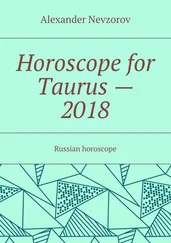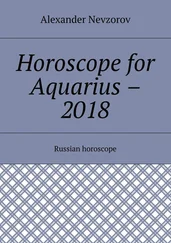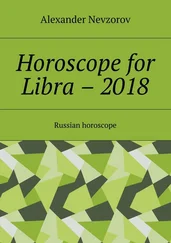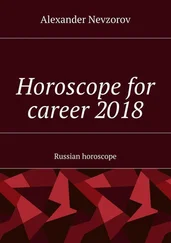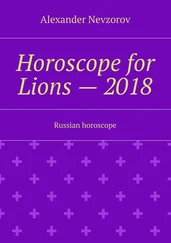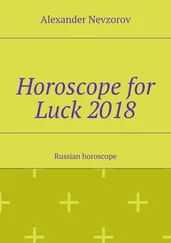Geneva is not an exciting town. The centre for international espionage in two wars, it singularly fails to come up to expectations. Swiss architecture, admirable as it may be, does not supply that Puritanical atmosphere of the dark alley and the shuttered casement which should go with the meeting of agents. It may be for this reason that it is such a favourite for clandestine encounters. A meeting of the Inquisition with Torquemada in the chair would there take on the semblance of normality of a parochial council. It must be remembered also that at that time the dove of League peace was still hovering over the town. Slightly bedraggled after Munich, she was still surrounded with an aura of international amity, as bogus, alas, as my role of tourist. It would be difficult to have found a more cynical rendezvous for a spy meeting. Nor is it really relevant that I was only one of many members of varied and various spy rings who were hurrying there for meetings of varying degrees of secrecy and respectability.
Remaining true to my role as a tourist, I stayed at a small hotel near the station and on the appointed day went to the post office for the rendezvous , armed with the necessary paraphernalia for my contact. Anyone who has ever attempted to pick someone up under the clock at Charing Cross station, with the usual marks of identification dear to the writers of notices in the personals column of the Times, can imagine my feelings. It seemed that all the hausfraus of Geneva had conceived the happy idea of supplying their loved ones with a nice orange for their midday meal and all Geneva wrapping paper appeared green. All the women looked equally respectable and equally indifferent. Holding my leather strap, I felt a self-conscious fool and an ass, at best self-doomed to embarrassment and at worst to a Swiss charge of accosting.
The local clocks announced, rather smugly to my heated imagination, that noon had arrived, and not one of the crowd swirling past the steps had even vouchsafed me a glance. Then I noticed her. Punctuality may be the politeness of princes but it is certainly a perquisite of Soviet spies. Slim, with a good figure and even better legs, her black hair demurely dressed, she stood out from the Swiss crowd. In her early thirties, she might have been the wife of a minor French consular official. Her bag contained a green parcel and she held an orange.
"Excuse me, but where did you buy that belt?"
Contact had been established.
Seldom if ever can a spy have gone on a mission with so few technical qualifications and knowledge as I. Speaking only inferior French, a little kitchen Spanish, and elementary German, I was not exactly qualified for work on the Continent. Knowing nothing of wireless or other secret means of communication, I was equally ill equipped to communicate any information that I might acquire; and I laboured under the additional handicap of not knowing for whom I was working. My only qualifications were my native common sense, a capacity to judge a position and sum up a situation correctly and succinctly, and, most important in Russian eyes, a good political background. That I ended my career as a spy speaking fluent French and passable German, an efficient wireless operator capable of building my own set, and with a working knowledge of microphotography and the simpler secret inks, speaks, I think, more highly for my adaptability than for the efficiency of the Russian Intelligence Service. In obtaining these qualifications I received no help and little encouragement from my masters. No one could have been more of an innocent in espionage than I was at first, and the fact that I lasted was more a matter of personal good luck than good judgment by the Russians. It must be remembered, however, that I was a "new boy" recruited ad hoc and for a network still in embryo. Their other networks were longer established and better installed. I should know, as in the end I was running one.
After having established contact, my new acquaintance and I adjourned prosaically for coffee. A pleasant person and an amusing companion, my first espionage contact was not as frightening as I had expected. She told me that she was unfortunately not allowed to reveal her name nor to tell me for whom I would be working- for the moment. I could call her Sonia. She spoke English with a slight foreign accent and was, I should judge, a Russian or a Pole- certainly a Slav. When I was finally established in the network I learnt her name. She was Maria Schultz and had had a long career as a Red agent. She and her husband, Alfred Schultz, had worked for the Red Army in Poland and the Far East. Her husband was, I gathered, still in the Far East and I believe at that time was under arrest by the Chinese for espionage activities. She was now starting up a network in Switzerland for work against Germany, and I was one of the first of her recruits. But all this I learnt later, and the only new knowledge that I had acquired in the cafe was her cover name- which for ease and clarity I shall continue to use throughout the narrative.
Sonia and I continued to meet for several days at various public rendezvous in Geneva, but I learnt little more of any interest. All I was told was that it had been decided that I was to go to Munich. There I was to install myself as a tourist and learn the language, make as many friends as possible, and keep my eyes open. Not very onerous or indeed explicit instructions, but after the Spanish front line it was a relief to know that the task described to me in London as "difficult and dangerous" was to be, at any rate for a start, so easy and pleasant. Sonia gave me two thousand Swiss francs for my expenses in Munich and fixed up a rendezvous in three months' time. This time it was to be in Lausanne but at the same locale, the General Post Office, and a series of hours and days were fixed in case anything went wrong.
It was with a light heart that I returned to England to collect my kit and get my visa. Early in November I arrived in Munich.
Munich at that time was a pleasant place. At least for an innocent abroad with enough pocket money and little to do save prepare political reports on Germany and for the rest of the time enjoy myself. I managed to pick up a fair circle of acquaintances and the only brainwork I attempted was to learn German- which I was taught by a local member of the S. S. who lived in the same pension. Time passed swiftly and pleasantly enough till my next rendezvous with Sonia in February.
The only happening of even remote interest during my first Munich stay was that I lit by accident on Hitler's Stammtisch . Looking one day for a cheap place to lunch, I happened on the Osteria Bavaria and, having settled down to the good l/6d set lunch, I noticed a flurry at the door and Hitler strode in accompanied by his adjutant Bruecker, his photographer and toady Hoffmann, and two A. D. C. s. I discovered that the proprietor of the restaurant had been a fellow comrade during the first war; Hider had lunched there on and off for over fifteen years and even now that he had reached power he ate there whenever he was in Munich. This I confirmed, as I made a habit of lunching there and saw him sometimes as often as three times a week. I mention this triviality as it was to have somewhat surprising consequences later.
My second contact with Sonia went off as smoothly as the first, and this time we had several quite long and moderately enlightening talks. It was during this visit that I learnt for the first time that my masters were the Red Army Intelligence. Sonia told me that she was engaged in setting up a new network for them in Switzerland and that my credentials had been referred back to the Russian D. M. I., who had made the necessary checkups, and that I was now on the strength as a "collaborator" at a salary of U. S. $150 a month and all reasonable expenses.
Читать дальше




